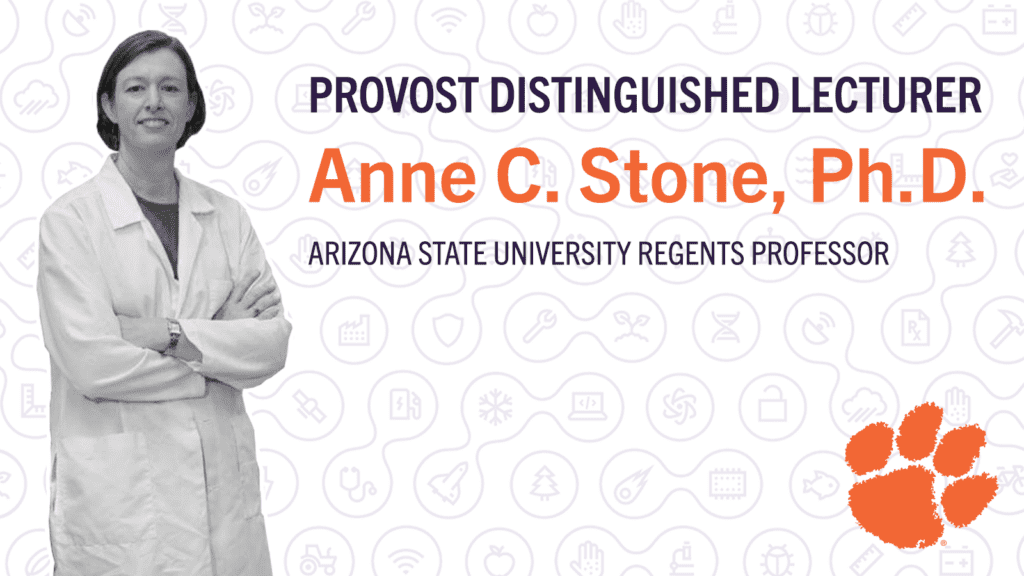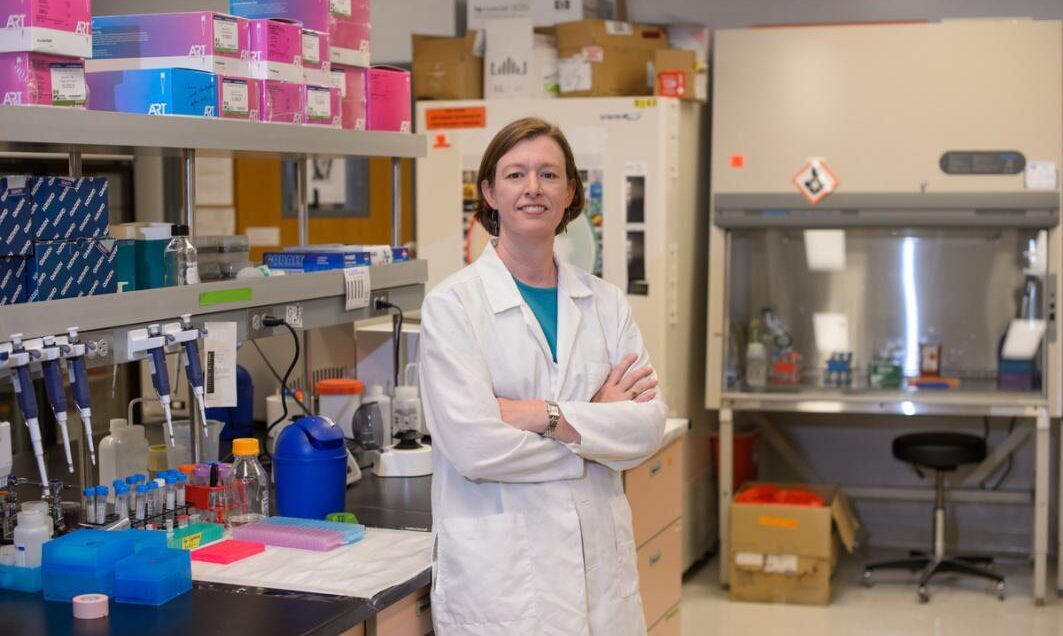In a world grappling with ongoing challenges of pandemics, one anthropological geneticist uses a unique tool to demystify the complex issues surrounding the evolutionary history of ancient pathogens in humans and other animals. Arizona State University’s Regents Professor Anne C. Stone’s groundbreaking work addresses questions about the evolutionary history of great apes, the emergence of new diseases and the intriguing facets of human history hidden within genes.
On Thursday, Oct. 19, from 9:30 a.m. to 10:30 a.m. Stone, a Clemson University Provost Distinguished Lecturer, will present* at the Watt Innovation Center to discuss:
Leprosy, the Black Death and the White Plague: What Ancient DNA tells us about Pathogens
Stone’s pioneering research has discovered invaluable insights into the evolutionary history of great apes, including how they have adapted to disease and dietary environments. For example, she has studied natural selection in the CCR5 gene, which is important for HIV resistance, analyzed regulatory differences in genes affecting the skeleton among humans and other primates, and investigated oral microbiomes in chimpanzees to examine how the bacterial communities differ in respect to rural and urban humans to understand how this might affect health.

VIRTUAL OPTION: This session is also available via Zoom and restricted to Clemson University accounts. All attendees planning to participate remotely must access the Zoom link with Clemson Credentials using SSO to join.
Stone’s work takes on newfound relevance in a world still reeling from the impact of the devastating COVID-19 pandemic. Additionally, reemerging infectious diseases, like leprosy and tuberculosis, pose significant challenges to global health. By studying ancient pathogen DNA from afflicted individuals, Stone is uncovering these diseases’ origins and evolutionary trajectories, shedding light on their resilience and adaptability. Her research also examines how the distribution of pathogens strains has changed over time, particularly before and after the age of exploration/ colonization.
Delving into the past to better understand the present, Stone‘s research unlocks the secrets hidden in unexpected places—deep within genes.
Stone is an editorial board member of the Philosophical Transactions of the Royal Society, Series B, and her specialization and central area of interest is anthropological genetics. Stone’s research focuses on population history and understanding how humans and the great apes have adapted to their environments, including their disease and dietary environments. She has been a John Simon Guggenheim Memorial Foundation fellow (2022)Fulbright Fellow (1992-93), and a Kavli Scholar (2007), and, in 2011, she was elected a fellow of the American Association for the Advancement of Science. In 2016, she was elected to the National Academy of Sciences. She has served on the editorial boards of the American Journal of Physical Anthropology, the Journal of Human Evolution, Evolution, Medicine, and Public Health and Molecular Biology and Evolution.
Her parents, Carolyn and DeWitt Stone, will be in attendance. DeWitt served as Assistant Vice President for Academic Affairs for the University until his retirement in October 2001, and is a member of Clemson’s Emeritus College.
*Accommodations are available by request.
Please contact Berinthia Allison at balliso@clemson.edu
as early as possible prior to the event to help ensure availability.

